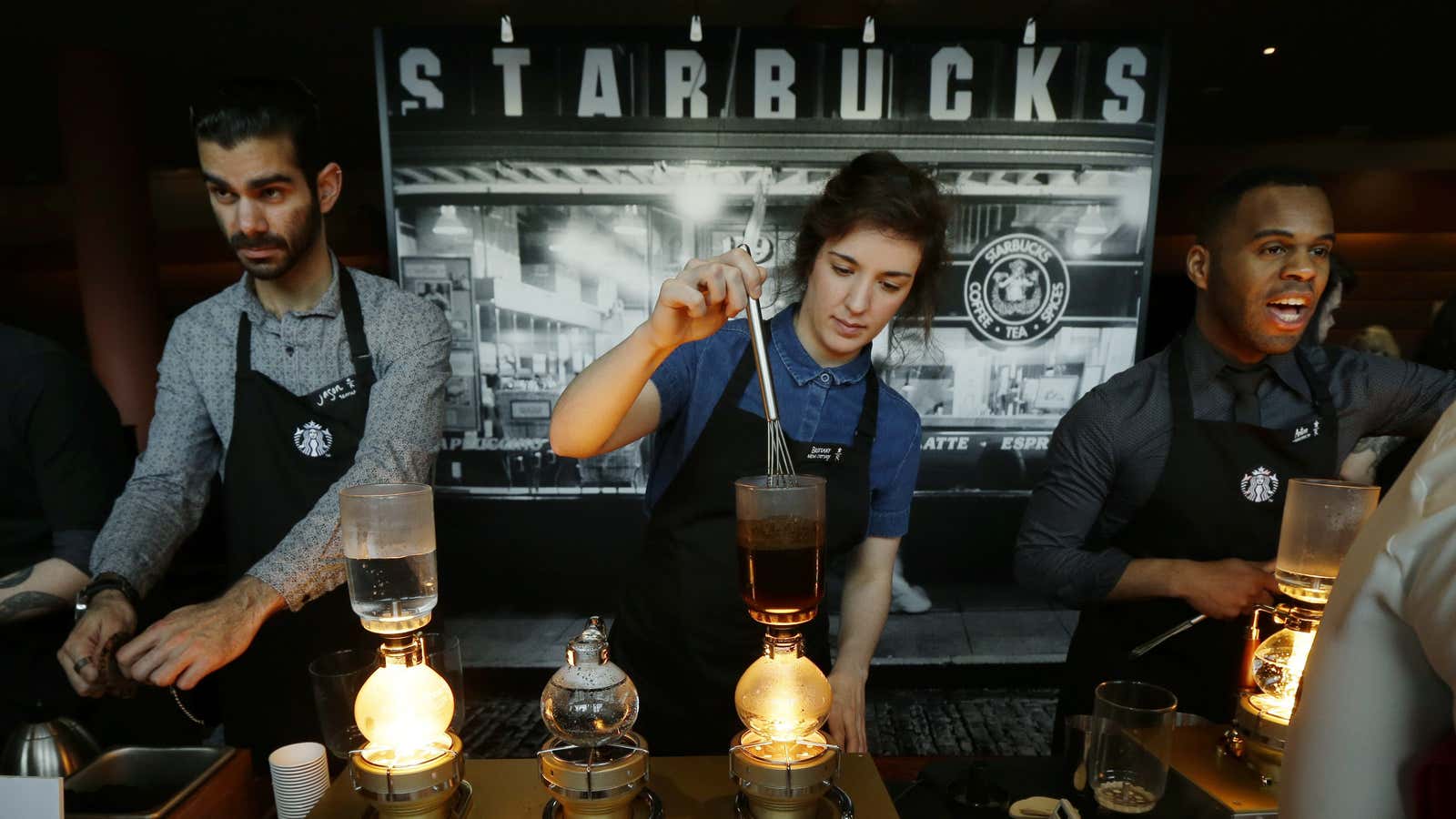Shareholders of Starbucks are trying to hold the coffee seller accountable for its uneven parental-leave policies.
While all of the company’s corporate-level employees are eligible for at least 12 weeks of paid parental leave—with birth mothers eligible for as much as 18 weeks—Starbucks store employees in the US are eligible for paid leave only if they are birth mothers or adoptive parents, and then for only six weeks. According to Zevin Asset Management, a Boston firm that agitates for socially responsible business practices on behalf of its clients, the difference unfairly penalizes low-income workers as well as gay workers, who are more likely to adopt and foster children, the firm argued in a shareholder resolution filed in late September.
Unequal benefits expose the company to lawsuits and lost worker productivity, said Pat Tomaino, Zevin’s associate director of socially responsible investing. “The inequality is itself corrosive of morale,” he said.
The resolution, which has not yet been put to a shareholder vote, proposes calling on Starbucks’ board of directors to prepare a report on its policies and post it online before the company’s 2019 annual meeting.
Starbucks has prioritized other benefits for store workers, such as health care and education provisions, based on employee feedback, said company spokesman Reggie Borges.
Starbucks doesn’t fit the typical profile of a company in the crosshairs of shareholders on employee treatment, given its reputation as a virtuous corporate citizen. But despite offering benefits that look unusually generous among retail and fast food companies, Starbucks’ parental leave policies lag those of other employers, like IKEA, Amazon, and Nordstrom, Zevin noted in its resolution. IKEA, for example, offers all new parents six weeks of paid leave and six weeks of additional leave at 50% of pay.
The US is the only industrialized nation that doesn’t mandate paid parental leave, and bills to create a new law are stuck in a Congress as gridlocked as ever. US president Donald Trump campaigned on a pledge to mandate six weeks of maternal leave, but he’s barely mentioned it since taking office.
Targeting corporations is the latest strategy for advocates of expanding paid-leave policies to cover all workers.
Pressuring companies directly can produce immediate results, says Katie Bethell, founder of PL+US: Paid Leave for the United States, an advocacy group. “Part of our strategy is looking at what levers we can pull that have the widest impact,” she said. “How can we win more family leave for more people more quickly?”
The Starbucks resolution is the first shareholder resolution filed by Zevin that focuses on parental leave policies, but that’s in part a result of the company’s deadlines for filing resolutions, Tomaino said. There may be more to come: Zevin has sent letters to 10 other US corporations—including Apple, AT&T, and Marriott—asking them to make changes. Additional resolutions could follow to prod them along, Tomaino said.
An earlier version of this story contained out-of-date information about the leave policy for adoptive parents who work at Starbucks stores. The policy, and this story, have been updated.
